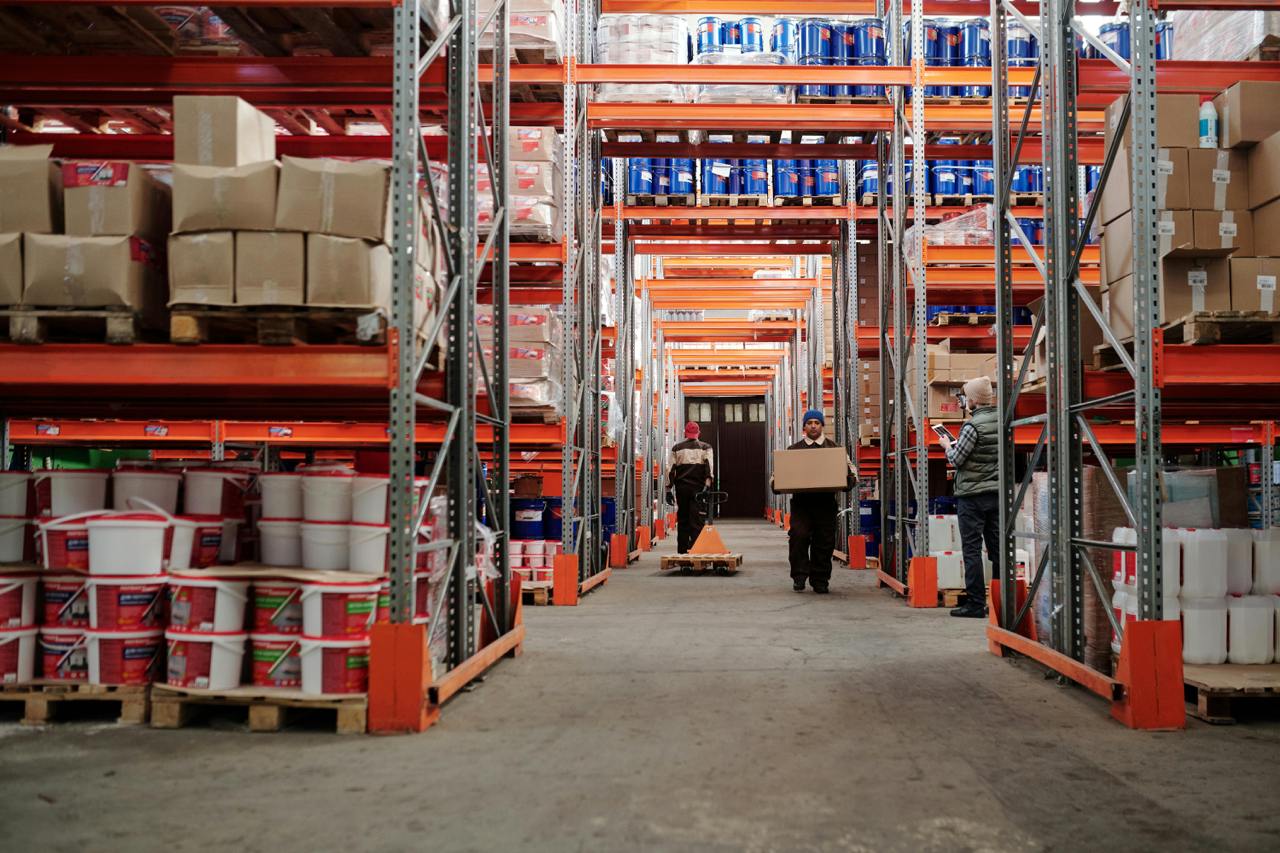Sourcing products from reliable wholesale suppliers is a critical aspect of any business that wants to succeed in the global marketplace. India, with its rich manufacturing base, skilled workforce, and diverse industries, is one of the most attractive destinations for wholesale sourcing. If you are a B2B buyer looking to source products from India, this comprehensive guide will help you navigate the process of finding trustworthy wholesale suppliers.
____________________________________________________________________________
Why India is a Prime Destination for Wholesale Sourcing
India’s economic growth, coupled with its vast and diverse manufacturing landscape, makes it an ideal location for sourcing wholesale products. Here are some key factors that make India stand out:
Economic Growth and Stability
India is one of the fastest-growing economies in the world, thanks to its large and youthful population. The country’s economic stability, favorable government policies, and growing middle class provide a conducive environment for businesses. As a result, India’s industrial output has grown across several sectors, from textiles to electronics and machinery, making it an attractive option for wholesale buyers.
Competitive Pricing
One of the most significant advantages of sourcing from India is the competitive pricing of products. Due to lower labor costs and a wide variety of manufacturers, products from India often come at a fraction of the cost compared to other countries. For B2B buyers, this offers an opportunity to secure higher margins, even when purchasing in bulk.
Diverse Industries
India is home to a wide range of industries, including textiles, agriculture, electronics, automotive, and pharmaceuticals. This diversity allows B2B buyers to source virtually any product they need, from fashion apparel to agricultural machinery or consumer electronics. Whether you are sourcing raw materials or finished products, India offers a vast range of options.
____________________________________________________________________________
Types of Wholesale Suppliers in India
India’s B2B wholesale market is vast, and understanding the different types of suppliers will help you make the best choice for your sourcing needs. There are several categories of suppliers to consider:
Manufacturers
Manufacturers are the heart of any supply chain. They produce goods directly from raw materials and are usually the best option when you want to source products at the lowest possible price. Sourcing from manufacturers eliminates intermediaries, which helps to reduce costs. Additionally, manufacturers can often offer more flexibility in terms of product customization, making them a great choice for buyers with specific requirements.
Distributors
Distributors are the middlemen between manufacturers and end buyers. They purchase products in bulk from manufacturers and then sell them to businesses. Distributors often carry a wider range of products from multiple manufacturers, allowing you to access a variety of goods from different brands. While their prices might be slightly higher due to their role as intermediaries, distributors offer the convenience of being able to purchase multiple products from one source.
Wholesalers
Wholesalers typically buy products in bulk and sell them in smaller quantities to businesses or retailers. They usually don’t produce the goods themselves but act as bulk buyers who source products from manufacturers and sell them to businesses. Wholesalers are an ideal option for B2B buyers looking to purchase a wide variety of goods at competitive prices but don’t need direct access to manufacturers.
Traders and Exporters
Traders and exporters play a vital role in facilitating international trade. These suppliers help businesses navigate the complexities of cross-border transactions. They often have established networks of manufacturers and wholesalers in India and can help you procure products quickly, especially if you’re looking to import goods into your home country. Traders and exporters are ideal for businesses that are new to international sourcing or need assistance with logistics and documentation.
____________________________________________________________________________
How to Identify Reliable B2B Wholesale Suppliers
Finding reliable wholesale suppliers is essential to ensure the long-term success of your business. Below are some steps you can take to vet potential suppliers:
Supplier Verification
Always start by verifying the legitimacy of any supplier. A reputable supplier should have official business registration, valid trade licenses, and any necessary certifications. You can verify a supplier’s credentials by asking for their registration details and checking them against official business directories. In India, you can also check with government bodies like the Directorate General of Foreign Trade (DGFT) to confirm that the supplier is licensed to trade.
Customer Reviews and Testimonials
A good way to assess a supplier’s reliability is by reading reviews and testimonials from other buyers. Many B2B platforms like Global Trade Plaza and IndiaMart feature customer feedback, which can give you a sense of how the supplier conducts business. A supplier with a track record of positive reviews and long-term partnerships is often a reliable choice.
Supplier Audits and Factory Visits
When dealing with larger orders, it’s worth considering conducting factory audits or visits. If possible, visiting the supplier’s production facility can give you a firsthand look at their manufacturing process and quality control measures. You’ll also have the opportunity to assess their production capacity and meet the team behind the operations, which can help build trust and transparency in your partnership.
Third-Party Platforms and Trade Shows
B2B marketplaces like Global Trade Plaza and IndiaMart can help you connect with verified suppliers. These platforms often vet suppliers and allow you to compare different suppliers in terms of pricing, products, and business practices. Attending industry trade shows is another excellent way to meet suppliers face-to-face, evaluate their products, and assess their capabilities.
____________________________________________________________________________
Where to Find Wholesale Suppliers in India
Finding the right supplier involves knowing where to look. Here are some of the best places to search for wholesale suppliers in India:
B2B Marketplaces
Online platforms like Global Trade Plaza, IndiaMart, and TradeIndia are ideal resources for sourcing reliable wholesale suppliers in India. These marketplaces host a large number of suppliers, often with verified credentials, making it easy to browse products, request quotes, and connect with manufacturers and wholesalers.
Industry-Specific Directories
Many industries have specialized directories that list suppliers within specific sectors. For instance, the textile industry may have its own directory, while agricultural machinery suppliers may be listed in an agriculture-focused directory. These directories provide detailed information on each supplier, including their products, contact details, and business background.
Trade Fairs and Exhibitions
Trade fairs are an excellent opportunity to meet suppliers in person and evaluate their offerings. India hosts numerous trade exhibitions, such as the India International Trade Fair (IITF) and the India Sourcing Fair, which feature a wide range of suppliers from various industries. Attending these events gives you the chance to see products firsthand and establish personal relationships with suppliers.
Local Sourcing Agents
If you’re new to sourcing from India, working with a local sourcing agent can be an effective way to streamline the process. Sourcing agents have extensive networks of suppliers and can connect you with reliable vendors. They can also help navigate language barriers, facilitate negotiations, and handle logistics.
___________________________________________________________________________
Evaluating Supplier Capabilities
Once you’ve identified potential suppliers, it’s essential to assess their ability to meet your business requirements. Here’s how to evaluate supplier capabilities:
Product Quality
Product quality is paramount when sourcing goods from any supplier. Request samples before placing bulk orders to assess whether the products meet your standards. Inspecting samples ensures that the products are manufactured to your specifications and that they align with your target market’s expectations.
Production Capacity
It’s crucial to ensure that your supplier can meet your production demands, especially if you intend to place large orders. Verify the supplier’s production capacity by asking about their workforce, machinery, and facilities. This will give you insight into their ability to fulfill orders in a timely manner.
Lead Times and Delivery
Timely delivery is essential for any business. Make sure you discuss the lead times and delivery schedules before committing to an order. Suppliers should be able to provide you with a clear timeline for manufacturing and shipping, along with tracking information.
Certifications and Compliance
Verify whether the supplier adheres to industry standards. For example, in the food industry, look for suppliers who comply with FSSAI regulations. For electronics, ensure that they meet certifications like CE or RoHS. These certifications not only assure you of product quality but also help you avoid regulatory issues.
____________________________________________________________________________
Negotiating with Wholesale Suppliers
Negotiation is a key aspect of securing favorable terms with wholesale suppliers. Here’s what to keep in mind when negotiating:
Pricing and Payment Terms
Start by discussing pricing and ensure that the terms are clear. Negotiate payment terms that work for both parties, such as partial payments upfront and the balance upon shipment. This protects both you and the supplier from potential fraud.
MOQ (Minimum Order Quantity)
Suppliers often have a minimum order quantity (MOQ), which is the smallest number of units they will sell at a time. Make sure that the MOQ aligns with your business’s needs. If the MOQ is too high, it may result in overstocking or financial strain.
Shipping and Logistics
Negotiating shipping costs, delivery times, and freight options is crucial for managing your logistics. Ensure that you choose a shipping method that balances cost and speed. If you’re importing goods, discuss customs duties and other import regulations to avoid surprises at the border.
Establishing Long-Term Relationships
Building a long-term relationship with a supplier is mutually beneficial. Suppliers who value your business may offer you discounts, better payment terms, or priority access to products. Establish trust by consistently placing orders and communicating your expectations clearly.
____________________________________________________________________________
How to Ensure a Smooth Wholesale Buying Process
Once you’ve found the right supplier, here’s how to ensure that the buying process goes smoothly:
Contracts and Agreements
Always draft clear contracts that outline the terms of the transaction, including product specifications, payment schedules, delivery timelines, and quality standards. Having a formal agreement in place helps avoid misunderstandings and protects both parties legally.
Quality Control
Before shipment, implement quality control checks to ensure that the products meet your specifications. This can involve inspecting the goods at the supplier’s warehouse or using third-party inspection services. Quality checks help minimize the risk of defects or product recalls.
Customs and Import Procedures
Ensure that you understand the customs process when importing goods from India. Work with customs brokers or logistics partners who can help you navigate import tariffs, duties, and regulations to ensure smooth clearance at the border.
____________________________________________________________________________
Common Challenges When Sourcing from India
While India offers significant advantages as a wholesale sourcing destination, there are also challenges to consider:
Language and Communication Barriers
Although English is widely spoken in India, there may still be language barriers when dealing with suppliers. Working with a local sourcing agent or translator can help overcome this challenge.
Customs and Import Complications
India’s export laws and international shipping procedures can be complex. It’s important to work with reliable logistics partners to handle customs clearance and avoid delays in delivery.
Payment Frauds and Scams
To protect yourself from fraud, always verify suppliers thoroughly and avoid making large upfront payments. Using secure payment methods such as letters of credit or escrow services can offer peace of mind.
____________________________________________________________________________
Conclusion
Finding reliable wholesale suppliers in India is a process that requires careful research, due diligence, and strategic planning. By leveraging B2B marketplaces, conducting supplier audits, and maintaining clear communication, you can successfully source high-quality products at competitive prices. With the right supplier, your business can thrive, ensuring a consistent and cost-effective supply of goods for years to come.



































